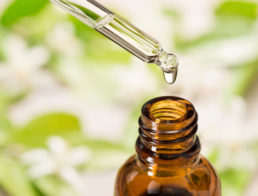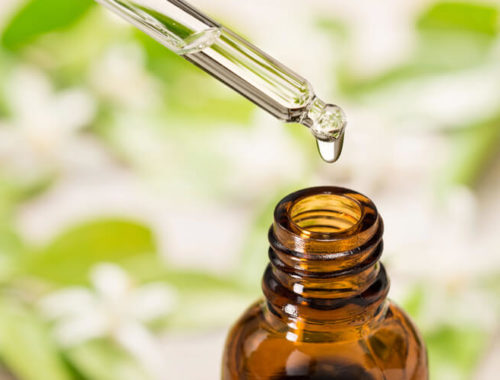High blood pressure was the primary or contributing cause of death for more than 472,000 Americans in 2017, causing nearly 1,300 deaths per day. Currently, about one in three adults has high blood pressure, according to the American Heart Association (AHA), which if untreated, can lead to a heart attack or stroke.
There are effective medications to reduce high blood pressure, but sometimes they don’t work as well as expected, or they create difficult side effects. In those cases, might cannabidiol (CBD) help?
What Causes High Blood Pressure?
Decide how much you want to use with this easy-to-control tincture, featuring CBD oil blended with the sweet taste of strawberry.
Blood pressure goes up or down depending on how much blood your heart pumps and the amount of resistance to that blood flowing through the arteries. When the force against the walls of the arteries is too high—high enough to eventually damage the blood vessels and the heart—you are said to have high blood pressure.
Doctors don’t know exactly what causes this disease, but they do know it’s more likely to affect people who are obese, or who have type 2 diabetes, kidney disease, or thyroid problems. The longer the blood pressure remains high, the more damage it does, wearing away at the delicate tissues inside the arteries. Over time, this leads to a plaque buildup that signals the beginnings of atherosclerosis or artery narrowing.
As this plaque increases, the arteries become more resistant to blood flow, and the heart has to work harder, increasing blood pressure even more. Yet the person often experiences no symptoms, which is why high blood pressure is often called the “silent killer.” The only way to tell if you have it is to get your blood pressure checked.
 Can CBD Lower My Blood Pressure?
Can CBD Lower My Blood Pressure?
CBD (cannabidiol) is extracted from the Cannabis sativa plant (hemp) and has been linked to some health benefits, including pain relief. It doesn’t contain the mind-altering properties of marijuana, but rather, is a natural extract that can be used for various benefits just like any other plant extract.
Recent research suggests that adding CBD to the diet could help to lower blood pressure. Some examples of CBD oil products that may be used for high blood pressure include this MedTerra CBD Oil Tincture (500 mg) and this Broad Spectrum Cannabinoid Tincture (1,000 mg).
 What Does the Research Say About CBD and High Blood Pressure?
What Does the Research Say About CBD and High Blood Pressure?
In one 2017 study, scientists gave healthy participants either 600 mg of CBD or a placebo, then subjected them to some sort of stressor, such as cold temperatures or exercise. During that period of stress—when blood pressure typically goes up—the researchers checked the participants’ blood pressure as well as other markers of cardiovascular health.
Results showed that those participants that took the CBD not only reduced their resting blood pressure, but they also reduced blood pressure increases in response to the stress.
As to why CBD may have this effect, scientists think it works as a “vasodilator,” meaning it helps widen or dilate blood vessels, making it easier for blood to flow through. In a recent study review, researchers looked at 22 published studies that assessed the ability of CBD to affect blood flow. They found that while CBD seemed to have no effect on blood pressure at rest, during stress, it significantly reduced the increase in blood pressure and increased blood flow.
Other studies have suggested that the body’s own endocannabinoids (our natural cannabinoids) help normalize blood pressure, implying that stimulating those cannabinoids with CBD may help increase this effect.
If you want to try CBD oil for blood pressure, two good options include GreenGardenGold 1500 mg PRIME Advanced Care CBD Oil or GreenGardenGold 1500 mg MED PAC CBD Oil.
 How Much CBD Should I Take for High Blood Pressure?
How Much CBD Should I Take for High Blood Pressure?
There are many different ways you can take CBD for high blood pressure. Options include capsules, gummies (such as Kats Botanicals CBD Gummies), tinctures, edibles, or vaping. Capsules, gummies, and tinctures must go through the digestive system, which means their effects will be delayed. Tinctures offer you the greatest control over dosage, though, which may be the best option for blood pressure.
Vaping, on the other hand, is one of the fastest ways to get CBD into your system. The effects don’t last as long though, and the dosage is very hard to determine. CBDFX has a Platinum Rose CBD Terpenes Vape Pen said to deliver 50 mg of broad-spectrum CBD.
When using these methods, you can refer to the product label for more guidance on dosage. The best advice is always to start with the lowest dose and then increase it as needed. Most human studies use between 20 and 1,500 milligrams per day, but for blood pressure, the common recommendation is between 20 and 300 mg per day.
 Does CBD Interact with Blood Pressure Medication?
Does CBD Interact with Blood Pressure Medication?
CBD may interfere with the metabolism of certain medications, including blood pressure medications. It inhibits two key enzymes the liver typically uses to break down some medications, which means it could cause the drug to stay in your system longer than usual.
CBD may also enhance the action of the medication, however, lowering heart rate or dropping blood pressure levels too low. Blood pressure medications can also delay or reduce the benefits of CBD products.
This is why it’s important to be particularly careful if you’re already taking blood pressure drugs. Check with your doctor, and if you get clearance, start with the smallest dose possible. A good option might be to try CBD Living’s CBD Gummies, which delivers 10 mg of CBD per gummy, or Charlotte’s Web CBD Oil, which gives you about 17 mg of CBD per one mL serving.
You could also consider trying CBD oil on its own to manage hypertension if you can do that safely. Or, you could start with a small dose, and if you find it’s effective, gradually lower the amount of medication you’re taking while subsequently increasing your dose of CBD in small increments.
In general, CBD products are considered safe and have few if any side effects. Adding them to your daily routine could help you keep your blood pressure within healthy levels. Meanwhile, for more tips on heart health, check out our post, “8 Tips to Lower Your Triglycerides.”
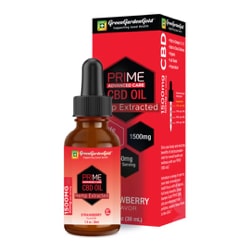
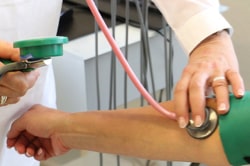 Can CBD Lower My Blood Pressure?
Can CBD Lower My Blood Pressure?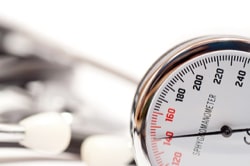 What Does the Research Say About CBD and High Blood Pressure?
What Does the Research Say About CBD and High Blood Pressure? How Much CBD Should I Take for High Blood Pressure?
How Much CBD Should I Take for High Blood Pressure? Does CBD Interact with Blood Pressure Medication?
Does CBD Interact with Blood Pressure Medication?





